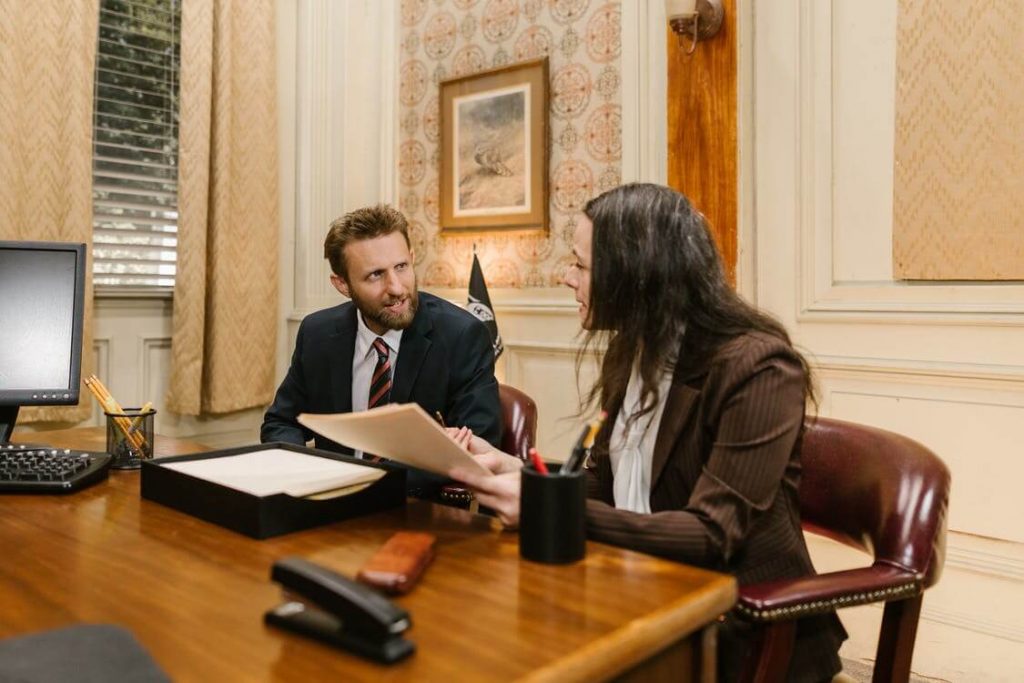Is it okay to track someone’s car? The emergence of cheap and accessible global-positioning systems technology like Apple AirTags, those products, and others like it has raised several somewhat troubling questions about private surveillance and movement-tracking of others by ordinary citizens.
No longer the sole domain of intelligence agencies and law enforcement or private investigators, movement tracking technology can be used by parents to find errant or missing children, but also by spurned lovers maliciously stalking an ex-partner. But is it illegal to track someone’s car? Is it against the law to track someone’s movements in general, say, by an app on their cell phone or other means?
You can talk to an expert privacy law lawyer via the contact form if you have questions about privacy in Canada.

A private investigator using a GSP tracker
In Canada and the United States, in Europe and elsewhere, the rise of both covert and overt surveillance by private companies and individuals has spurred governments and civil liberties advocates to sound the alarm over the privacy invasiveness of newly accessible technologies.
From video surveillance to movement tracking software or hardware, the use of these technologies by private individuals and companies has also led to widespread public debate.
Below are some things to think about:
- What is the legality of installing an electronic tracking device?
- Do you need a court order before the installation of a tracking device?
- Could a law enforcement officer charge you with a misdemeanour if you are not the owner of the vehicle? Maybe you could be charged with trespassing or some other state laws?
- Is fleet tracking okay, even if you don’t tell your employees?
- Is it illegal to track someone’s car if you are a licensed private investigator?
Installation of a tracking device
It’s best to speak to a lawyer or attorney about the laws in your area. The laws in Texas, New York, and Canada might all be different (and likely will be.)
The problem for policymakers, of course, is questions over how and when it should be legal or illegal to employ such products. In addition, it’s also an open question of how to hold people accountable for abusing private surveillance technologies for nefarious purposes.
Track someone’s car
For its part, the Office of the Privacy Commissioner of Canada released a guidance document in 2009 about the use of “covert” video surveillance, which it considers “extremely privacy-invasive.”
While it doesn’t specifically mention the tracking of a vehicle using GPS monitoring technology, it stands to reason that both video surveillance and movement-tracking applications involve the collection of and possible dissemination of private and personal information covered by the Personal Information Protection and Electronic Documents Act (PIPEDA).

Invasion of privacy
The federal legislation covers the use of personal information by employers through video surveillance and other means, establishing specific criteria that must be met for “covert video surveillance” to be compliant with the law. Companies must have a legitimate purpose for its use and disclose it to employees to gain their implicit or express consent.
Read more about the law:
The Privacy Commissioner’s guidance points out that it’s a “common misconception” that video surveillance in a public place negates privacy protection requirements, emphasizing that any personal information collected during “commercial activity” by an employer is covered by the PIPEDA.
In the case of tracking a vehicle, for example, a logistics firm may have GPS trackers and dashcams in all the trucks in their fleet, perhaps even a camera to monitor their drivers’ behaviour. Under privacy laws, the company would have to have a “demonstrable, evidentiary need” for the information.
The legality of a GPS unit
They could claim that GPS monitoring allows them to keep track of employees during their workdays, ensuring they’re not going on long, costly, and unnecessary detours or taking extended breaks in a fast-food restaurant parking lot. With GPS trackers on their vehicles, the company could also monitor their employees for dangerous driving habits and speeding, which could cause insurance liabilities and other problems.
So, a company could argue that collecting such information about their employees is about protecting the bottom line and ensuring safe driving habits, rather than “acting on mere suspicion” of employee time theft or dangerous driving.
The difference for private individuals is whether they have consent to track a vehicle. If they use an AirTag or GPS tracking device to find their vehicle in case of theft, that’s one thing and not illegal. However, covertly placing a tracking device on someone else’s car without their knowledge or consent is a bit of a different story and not necessarily a new phenomenon.

Unlawful installation of a tracking device
For instance, in 2012, an Ontario man went public with a story about finding a GPS tracking device on his truck when it was up on a maintenance hoist. He had no idea who put it there and police began an investigation, noting that it’s illegal to place a tracking device on a private vehicle without the owner’s knowledge or consent.
The problem came into sharp focus in 2014 when U.S. Senator Chuck Schumer proposed a new law that would make it “explicitly illegal” to electronically stalk people using GPS trackers on someone’s car.
While U.S. law already prohibits stalking, and the Supreme Court had already found that police need a warrant to use a tracking device on a vehicle under the Fourth Amendment, Schumer was alarmed that private citizens were under no such limitations. The gap in the law, he claimed, empowered domestic abusers to track victims and for companies to “spy on competitors.”
Schumer’s law, which didn’t pass federally while some states took action on their own, was in response to the explosion of cheap GPS tracking products available on the consumer market for relatively cheap prices. The senator claimed tracking someone’s car using a GPS device was an invasion of privacy that left “vulnerable populations” at risk.
Real-time tracking of vehicles
More recently though, stories of covert tracking of vehicles with Apple AirTags have taken a darker turn, with American law enforcement warning of the technology’s increasing role in the commission of crimes.
In June 2022, Fox News reported on a case of a woman who used an Apple AirTag to track her boyfriend’s car when she suspected him of cheating on her with another woman. When she found that to be the case after following him to a bar, she allegedly ran him over multiple times and killed him.
In response to the heinous crime, Apple put out a statement condemning the “malicious use” of its products. Fox News also reported that electronic vehicle tracking was not illegal across the United States, while two dozen states had their laws about electronic tracking, including Ohio.
The state’s legislature is crafting a law after the murder of a woman who was allegedly tracked with an AirTag in her vehicle by her felon ex-husband, who had reportedly stuffed an AirTag in one of the seat cushions of the woman’s car to stalk and later shoot her to death.

Invasion of privacy by tracking a motor vehicle
If you are the lessee of a vehicle, let’s say at an airport, you can count that the car rental company is tracking you in real time. You will likely have signed a disclaimer or contract saying that it was okay for them to do so. You will likely have given the lessor permission to put a GPS unit in your car.
It’s the same sort of thing with fleet vehicles, you will likely have signed an employment agreement saying that you are okay with it.
It’s a different story when it comes down to family law and your spouse‘s car. If you are trying to find out if your spouse is cheating, or you are going through a divorce, a judge might not like that you are tracking your spouse’s vehicle.
Illegal to track someone’s car conclusion
Laws around electronic tracking and surveillance may vary between jurisdictions, but anti-stalking laws, criminal harassment laws, and privacy protection regulations all may come into play when it comes to tracking a vehicle using GPS technology and readily available consumer technology products.
Make sure you get legal advice regarding federal laws if you have any concerns. The unlawful installation of a tracking device can get you in trouble if you are not the registered owner of a car.
Track someone’s car
The use and abuse of such technologies by private individuals and corporations remain an ongoing concern for governments around the world, who rightly worry about the misuse of surveillance technologies for harmful and sometimes violent purposes.
In the digital age, though, privacy continues to be eroded as technological advancements leapfrog over the heads of policymakers, who would be wise to keep apprised of new developments while crafting both proactive and reactive laws to curtail the malicious use of movement tracking technologies by law enforcement, corporations, and private individuals alike.
We hope you found this article on whether it’s okay to track someone’s car helpful.


